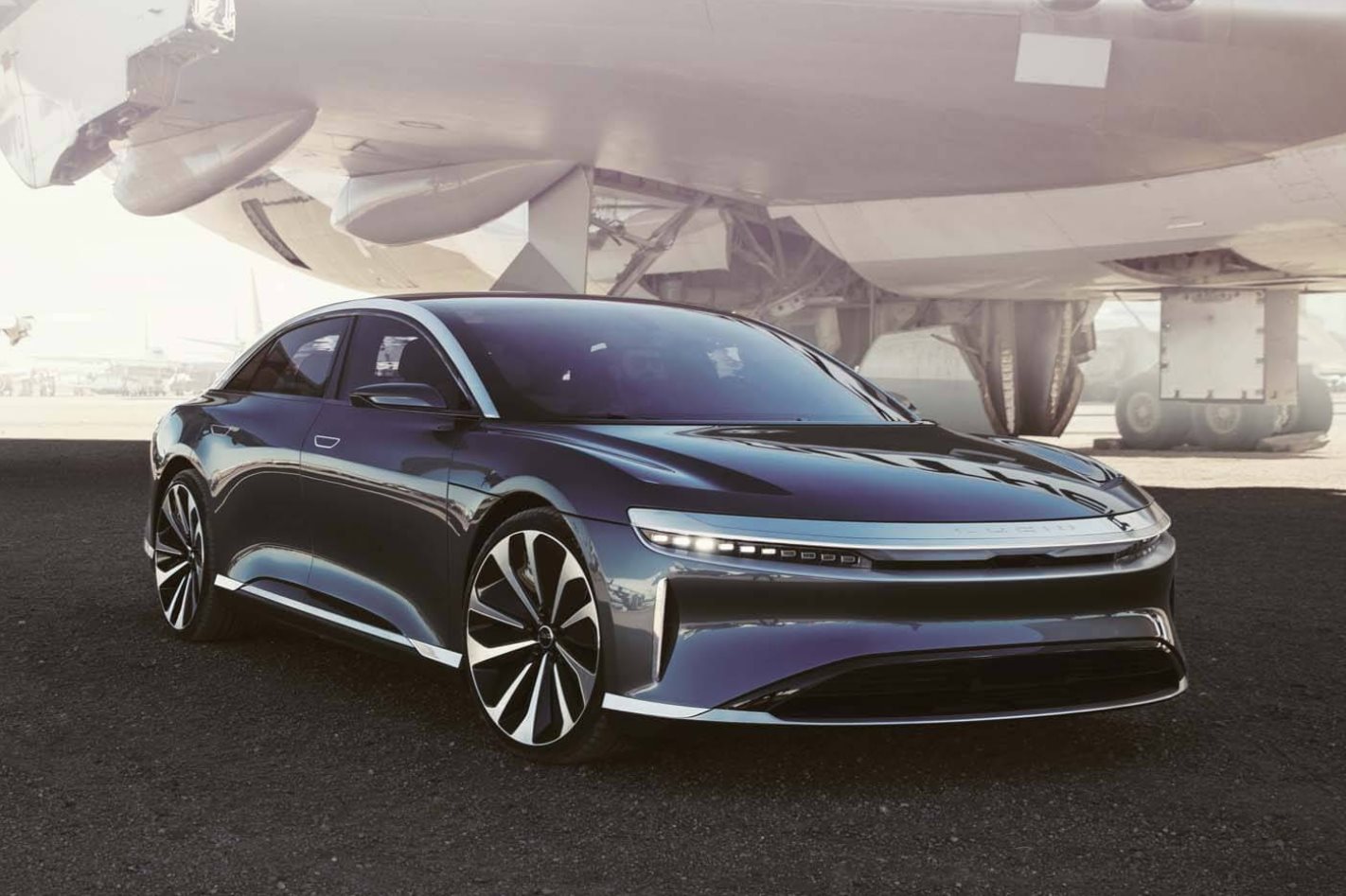
Tesla-taunting EV start-up Lucid Motors has continued to build the hype and anticipation ahead of its first model launch on September 9, with the Air luxury sedan’s record-breaking battery now detailed.
Earlier this month, the Californian EV challenger revealed that its first car would offer both single-charge range and charging speed in excess of established manufacturer Tesla’s, but the company has now explained how it achieves more than 830km and the benefits that come with it.
It should perhaps come as no surprise that a company initially founded (under the name Atieva) to focus purely on developing batteries and EV drivetrains should develop a class-leading system at the heart of its first model.
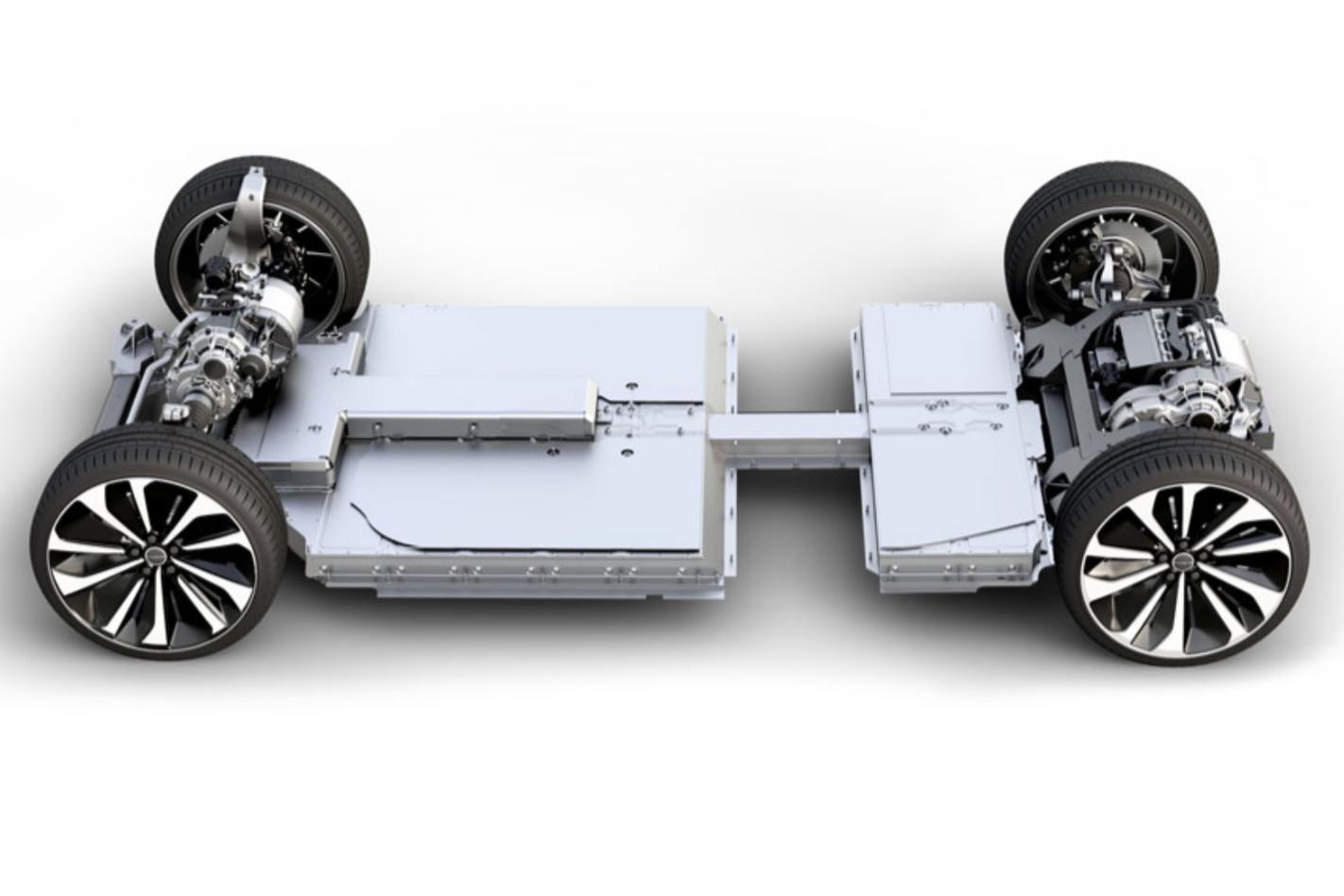
For a start, the Air has a 900-volt main electrical system compared with the more widespread 400-volt standard used by many other EVs including Tesla. In fact, only Porsche comes close with its 800-volt Taycan.
And while the largest capacities of any EV battery on the current market (pun intended) are about 90 to 100kWh, Lucid’s battery is rated at 113kWh. The larger capacity means it can hold more energy and the higher operating voltage is the key to both fast charging and the high-performance enabled by fast discharging.
Unless Tesla can substantiate its 1000km battery range claims for the forthcoming (but delayed) Roadster, or a Model S replacement, it’s likely Lucid will be the longest range and largest battery capacity EV on the market when it rolls out early next month.
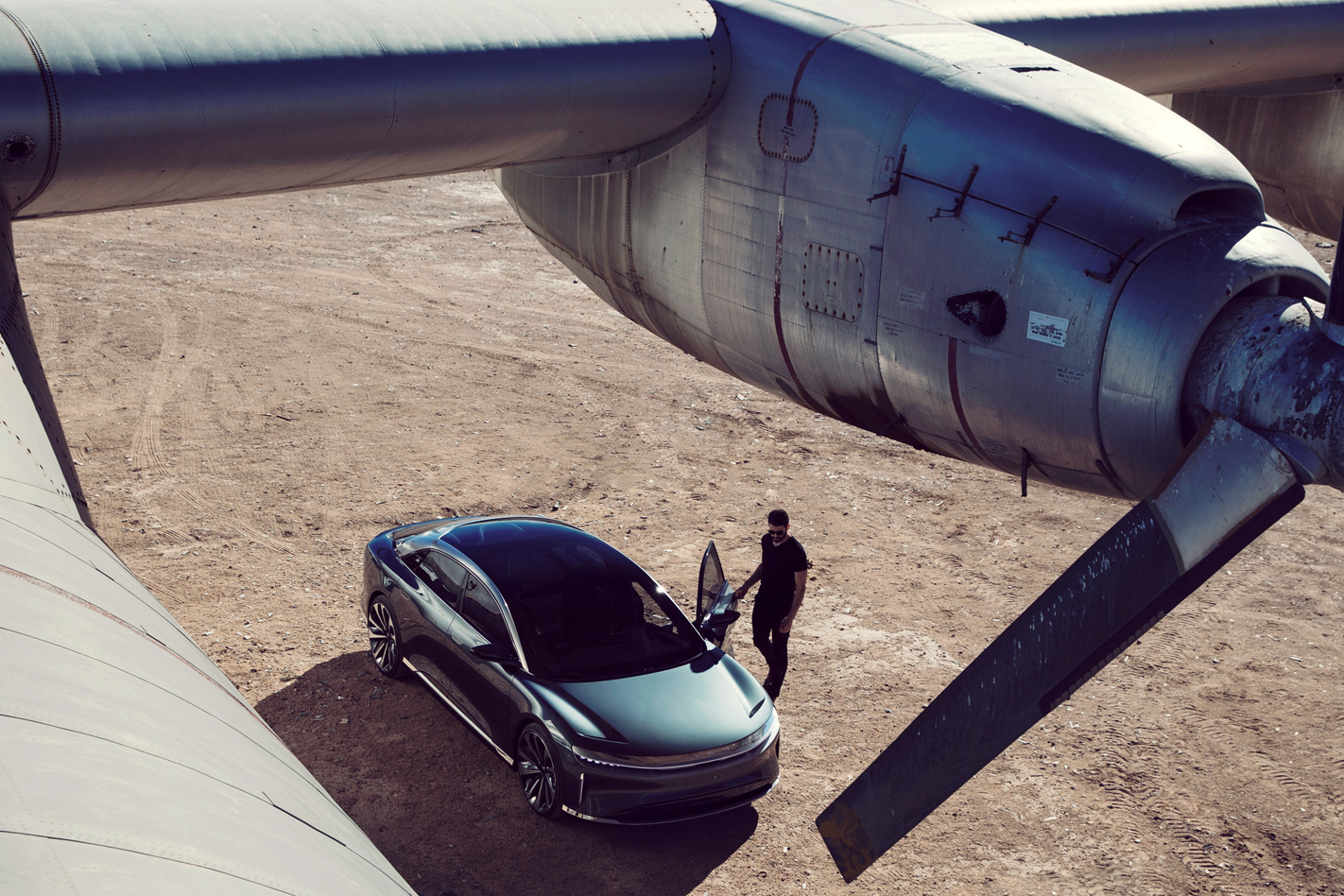
But Lucid’s battery design has made steps forward in crucial energy density which means it can squeeze in more electricity without increasing dramatically in size or weight. Lucid calls it its Space Concept.
Battery chemistry is the same lithium-ion used by almost all other vehicle battery manufacturers but Lucid’s designers enabled the battery to be more compact and shaped to conform with the design of the Air.
The result is a long-range battery that doesn’t intrude into passenger or luggage compartments. While a majority of the battery is positioned under the vehicle floor, a portion extends up into space behind the centre console and dash, while another ‘sculpted’ section makes room in the floor for rear passenger’s feet.
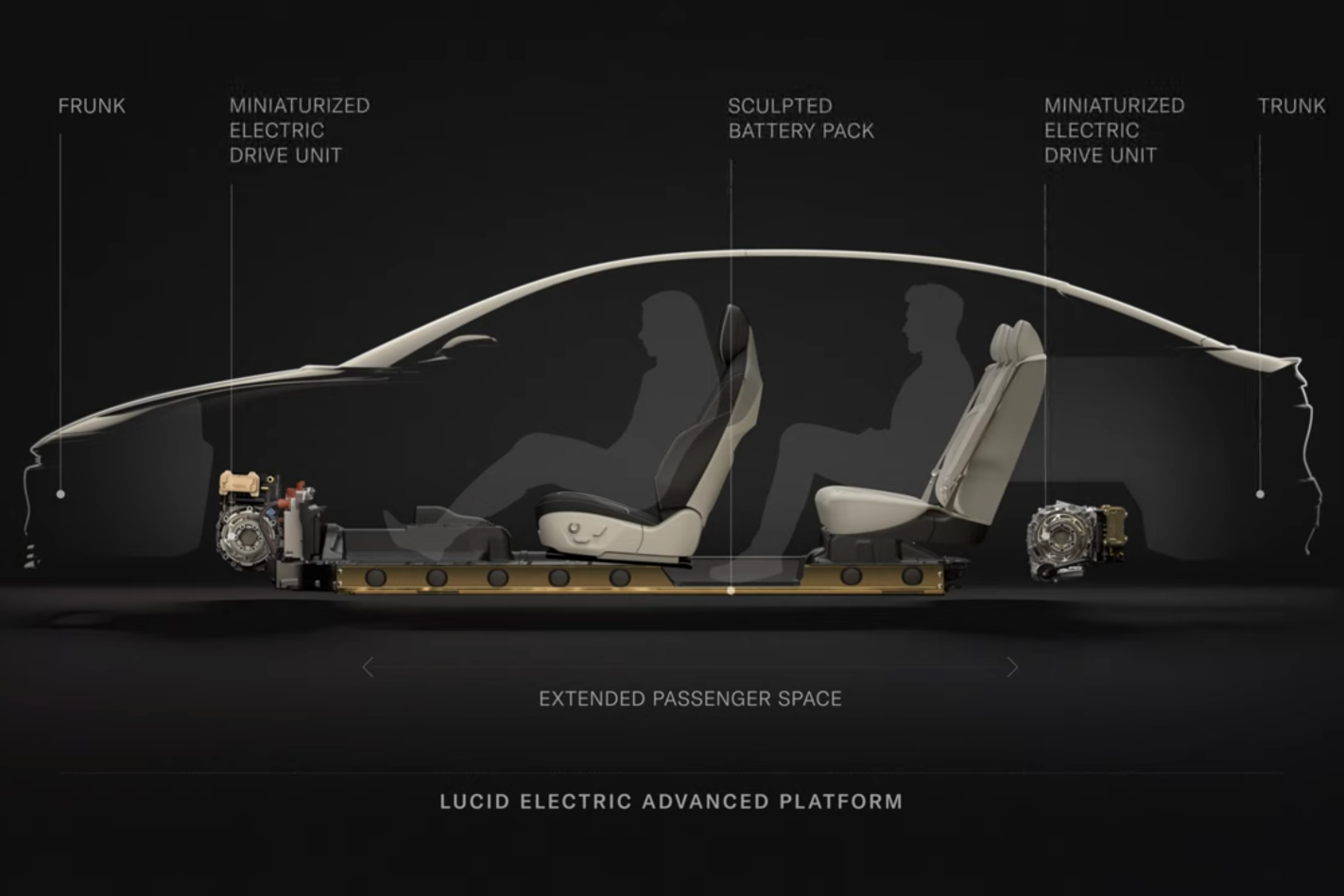
With no engine to occupy the under-bonnet space, the Lucid Air offers 280 litres of storage up front and another 460-litre boot at the back. For context, the Lucid’s front luggage area is the same as a Toyota Yaris boot, while the combined total is the same as an Audi Q7’s.
All this from a sedan that, on the outside, is about the same size as a Mercedes E-Class.
“It’s relatively easy to achieve more range by adding progressively more batteries, but gaining ‘dumb range’ that way increases weight and cost, and reduces interior space,” said Lucid Motors CEO Peter Rawlinson.
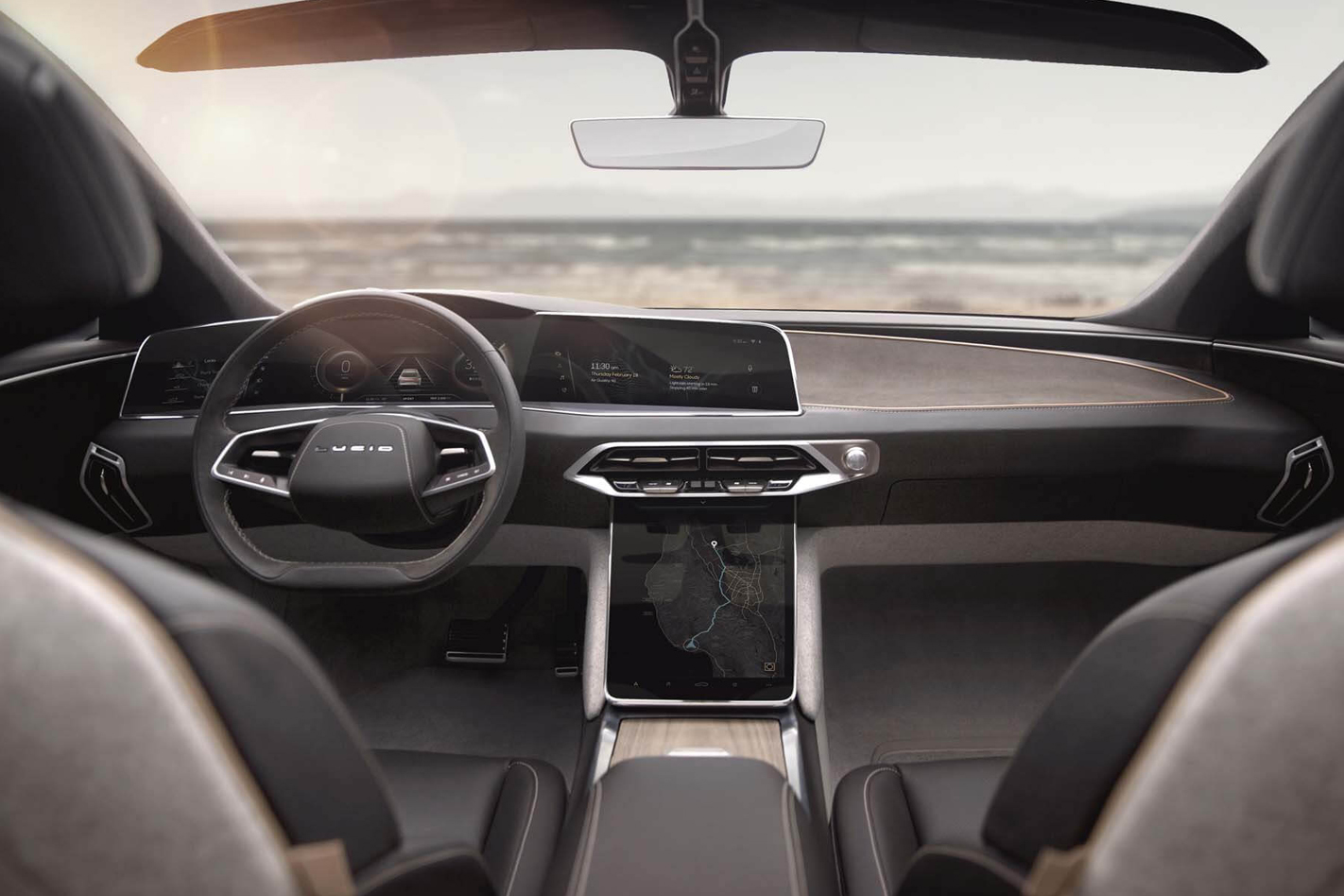
“Lucid Air has achieved its remarkable range whilst also reducing battery size through its in-house technology, resulting in a breakthrough in overall vehicle-level efficiency.
“By pursuing this ‘smart range’ approach, Lucid shall not only be able to offer the Air with this unprecedented absolute range, but also offer future models that achieve competitive range from proportionately smaller battery packs, thereby saving cost, weight, and space.




